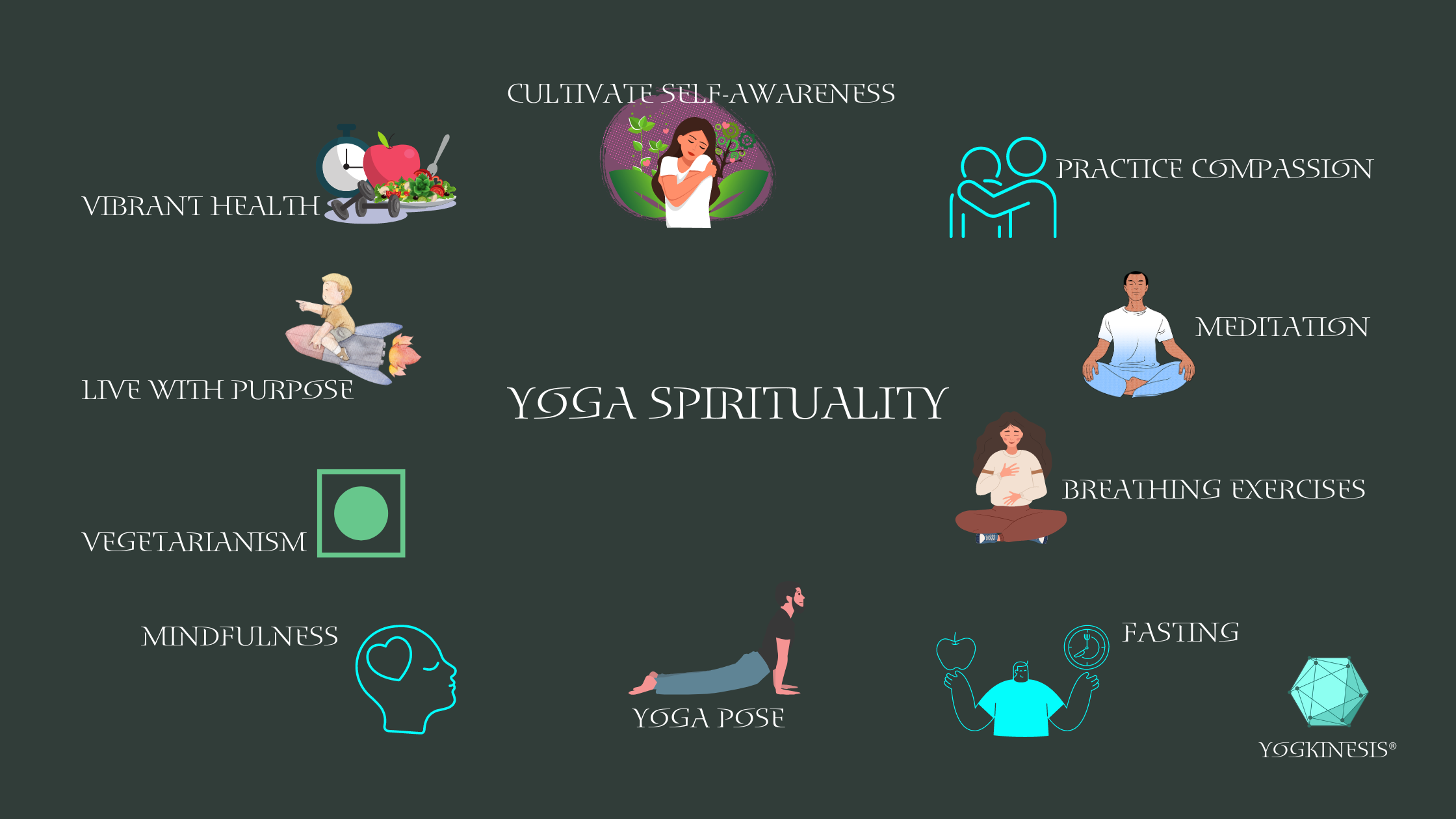
Unity in Diversity
Yoga is often seen as a unifying force that brings people together from different cultures and backgrounds. The practice of yoga has been adapted and modified in various ways to suit the needs of different communities, making it a diverse practice that can be practiced by anyone regardless of their cultural or religious background.
Yoga teaches us to cultivate a sense of unity within ourselves, which can then extend to the wider community and the world around us. It encourages us to see beyond differences in race, ethnicity, gender, religion, and nationality, and to recognize our shared humanity.
Yoga's ability to promote unity in diversity is reflected in the wide range of yoga styles and practices that have emerged over the centuries. From the physical postures of Hatha Yoga to the spiritual practices of Bhakti Yoga, there are many different paths within yoga that offer something for everyone.
In recent years, there has been a growing movement towards making yoga more accessible and inclusive, with an emphasis on creating welcoming and safe spaces for people of all backgrounds and abilities. Overall, yoga's emphasis on unity in diversity is a powerful reminder of our shared humanity and our interconnectedness with each other and the world around us.
Yoga and Spirituality
Yoga and Spirituality are inseparable with yoga being a powerful tool for spiritual growth and development. Yoga is an ancient teaching that helps the persistent practitioner to achieve spiritual enlightenment and a comprehensive system, a way of thinking, and a way of living our everyday lives, bringing us closer to our inner selves and to the divine, however, one may conceive of it.
The physical postures, or asanas, of yoga, are just one aspect of the practice and are often used as a way to prepare the body and mind for deeper spiritual practices such as meditation and pranayama (breath control). Through regular practice, yoga can help us cultivate a deeper sense of awareness and presence, which can lead to a greater understanding of ourselves and our place in the world.
Yoga also teaches us to cultivate qualities such as compassion, love, and selflessness, which are considered essential for spiritual growth. Do not lie, cheat, take advantage of other people, or harm others in any way in your everyday life. Stop habits that are damaging to you; stop harming and sabotaging yourself in any way. Change your habitual negative thinking into a positive one. Stop judging people; you are no better than they are. Experience a sense of unity with the divine and with all beings by letting go of your ego and connecting with something greater than yourself.
In addition to its spiritual benefits, yoga has been shown to have numerous physical and mental health benefits, including stress reduction, improved flexibility and strength, and better overall well-being. This mind-body-spirit connection is at the heart of yoga's appeal and has helped make it a popular practice around the world. Overall, the practice of yoga can be a powerful tool for those seeking to deepen their spiritual practice and cultivate a greater sense of connection and purpose in their lives.
Simple Ways You Can Apply Spiritual Concepts of Yoga in your life today!
Yoga is your chance to take the same spiritual concepts and apply them to your real life in many ways:
Practice mindfulness: Mindfulness is the practice of being fully present at the moment, without judgment or distraction. This can be applied in daily life by focusing on the task at hand, rather than getting caught up in worries about the past or future. Whether you are working, eating, or spending time with loved ones, try to be fully present and engaged in the experience.
Cultivate self-awareness: Self-awareness is the ability to recognize and understand your own thoughts, emotions, and behaviors. This can be developed through yoga practices such as meditation and pranayama. Take time each day to reflect on your thoughts and emotions, and notice how they affect your actions and interactions with others.
Practice compassion: Compassion is the ability to empathize with others and act with kindness and understanding. This can be applied in daily life by treating others with respect and empathy, even when it is difficult. Practice putting yourself in other people's shoes and seeing things from their perspective.
Live with purpose: Yoga teaches us to live with purpose and meaning. This can be applied in daily life by setting goals and working towards them with intention and focus. Whether it is a personal goal or a contribution to the greater good, living with purpose can give a sense of fulfillment and satisfaction.
Take care of your body for Vibrant Health: Yoga emphasizes the connection between mind, body, and spirit. Taking care of your physical health can help support your spiritual growth. This can be done through regular exercise, healthy eating, and getting enough rest and relaxation.
Limit the stimulant intake such as coffee, alcohol, etc and at some point try to eliminate them. They deplete the body of vital energy and exhaust the body.
Eat a vegetarian diet that provides the body with energy, include whole grains in your diet, and drink lots of water daily.
Do fasting once a week for at least 3-6 months during the year.
Practice Yogic Asanas regularly.
Practice Yogic breathing exercises (Pranayama) regularly.
Meditate twice a day for 20 minutes – in the morning and the afternoon. You can do twice a day 20 minutes mantra meditation which is silent repetition of a word or phrase to clear your mind.
These simple habits are enough to bring vibrant health, clarity of mind, happiness, and peace into your life.